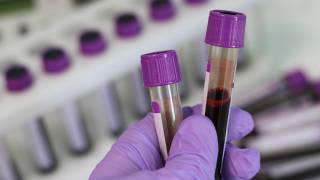Hepatitis - Adenovirus Outbreak in 169 Children Becomes Severe

The World Health Organization (WHO) recently confirmed additional reports of cases of acute hepatitis of unknown origin among young children in eleven countries.
As of April 21, 2022, at least 169 cases of acute hepatitis in children have been reported in the WHO European Region and the Americas.
Furthermore, the WHO confirmed seventeen children (one month to 16 years old) had required liver transplantation.
And at least one fatality has been reported.
Cases have been reported in the United Kingdom of Great Britain and Northern Ireland (114), Spain (13), Israel (12), the United States of America (9), Denmark (6), Ireland (<5), The Netherlands (4), Italy (4), Norway (2), France (2), Romania (1), and Belgium (1).
‘It is not yet clear if there has been an increase in hepatitis cases or an increase in awareness of hepatitis cases that occur at the expected rate but go undetected,’ wrote the WHO on April 23, 2022.
The clinical syndrome among identified cases is acute hepatitis (liver inflammation) with markedly elevated liver enzymes.
The common viruses that cause acute viral hepatitis (hepatitis viruses A, B, C, D, and E) have not been detected in any of these cases.
While adenovirus is a possible hypothesis, investigations are ongoing for the causative agent.
Many cases reported gastrointestinal symptoms and increased levels of liver enzymes (aspartate transaminase or alanine amino transaminase greater than 500 IU/L) and jaundice.
Adenovirus was detected in at least 74 cases, and 18 have been identified as F type 41. And the SARS-CoV-2 coronavirus was identified in 20 cases.
Furthermore, there have been 19 children detected with a SARS-CoV-2 and adenovirus co-infection.
The United Kingdom, where most cases have been reported, has recently observed a significant increase in adenovirus infections in the community following low circulation levels earlier in the COVID-19 pandemic.
The Netherlands also reported concurrent increasing community adenovirus circulation.
While adenovirus is currently one hypothesis as the underlying cause, it does not fully explain the severity of the clinical picture.
Adenoviruses are common pathogens that usually cause self-limited infections. They spread from person to person and most commonly cause respiratory illness.
There are more than 50 types of immunologically distinct adenoviruses that can cause infections in humans.
Infection with adenovirus type 41, the implicated adenovirus type, has not previously been linked to such a clinical presentation.
Adenovirus type 41 typically presents as diarrhea, vomiting, and fever, often accompanied by respiratory symptoms.
While there have been case reports of hepatitis in immunocompromised children with adenovirus infection, adenovirus type 41 is not known to cause hepatitis in otherwise healthy children.
Hypotheses related to side effects from the COVID-19 vaccines are currently not supported as the vast majority of affected children did not receive COVID-19 vaccination.
‘With continued new notifications of recent onset cases, at least in the United Kingdom, together with more extensive case searching, it is very likely that more cases will be detected before the cause can be confirmed and more specific control and prevention measures can be implemented,’ wrote the WHO.
The WHO’s priority is to determine the cause of these cases to refine control and prevention actions.
Note: This is one U.S. FDA-approved vaccine - Adenovirus Type 4 and Type 7 Vaccine - but it is reserved for military personnel.
Additional adenovirus - hepatitis outbreak information is posted at PrecisionVaccinations.com/adenovirus.
PrecisionVaccinations publishes fact-checked research-based news.
Our Trust Standards: Medical Advisory Committee
























